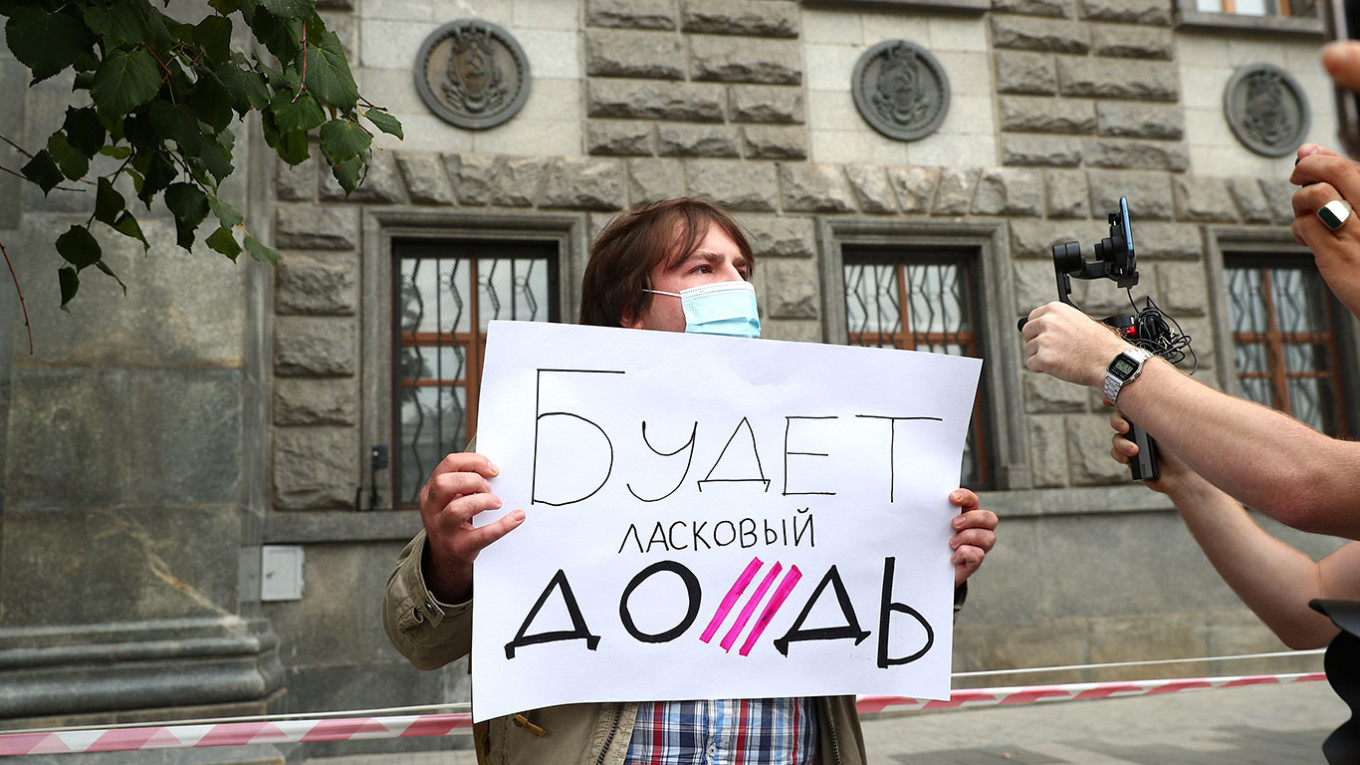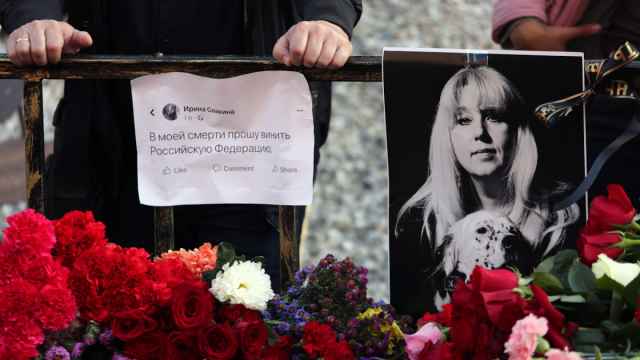Several Russian media outlets on Friday published an open letter to President Vladimir Putin and other top officials demanding an end to the "state campaign" against independent journalism.
The outcry comes after Russia slapped several media outlets and individual journalists with the "foreign agent" label that requires them to carry out tedious administrative procedures and clearly indicate their status on everything they publish.
Independent journalism in Russia is facing mounting pressure, especially in the run-up to parliamentary polls in September.
The letter was signed by the Meduza news website, Dozhd TV channel — both of which have been declared foreign agents this year — Forbes Russia and around half a dozen local media outlets.
"We, journalists and editors of Russian and Russian-language media, demand an immediate end to the state campaign against the independent press," the open letter said.
It added that these labels "directly violate" the constitution, media laws and freedom of speech.
The status either leads to the media's closure or creates "discriminatory conditions" that restrict the work of journalists, the letter said.
But the Kremlin on Friday swiftly rejected the letter's demands, saying authorities were simply applying the law.
"The law should exist and will exist," Putin's spokesman Dmitry Peskov told reporters.
That was because "NGOs and journalists are often used" by foreign states interfering in "the affairs of our country," he said.
He did say, however, that how the law is being enforced "should be discussed."
Organizations or individuals declared "foreign agents" must disclose sources of funding and label all their publications, including social media posts, with the tag or face fines.
The status is a deterrent for advertisers, a key source of revenue for many independent media.
In July, the investigative outlet Proekt, which reported on the wealth of Russia's elites, was declared an "undesirable organization," de-facto banning its work in the country under the threat of fines or jail time.
Russia has also blocked the websites of two media outlets and one human rights group linked to self-exiled Kremlin critic Mikhail Khodorkovsky.
The legislation behind the term "foreign agent," which has Soviet-era undertones, was originally passed in 2012 to cover NGOs.
It was expanded to include media organizations in 2017 after Kremlin-funded RT (formerly Russia Today) was declared a "foreign agent" in the United States.
A Message from The Moscow Times:
Dear readers,
We are facing unprecedented challenges. Russia's Prosecutor General's Office has designated The Moscow Times as an "undesirable" organization, criminalizing our work and putting our staff at risk of prosecution. This follows our earlier unjust labeling as a "foreign agent."
These actions are direct attempts to silence independent journalism in Russia. The authorities claim our work "discredits the decisions of the Russian leadership." We see things differently: we strive to provide accurate, unbiased reporting on Russia.
We, the journalists of The Moscow Times, refuse to be silenced. But to continue our work, we need your help.
Your support, no matter how small, makes a world of difference. If you can, please support us monthly starting from just $2. It's quick to set up, and every contribution makes a significant impact.
By supporting The Moscow Times, you're defending open, independent journalism in the face of repression. Thank you for standing with us.
Remind me later.






